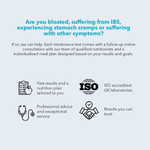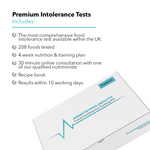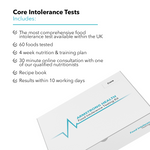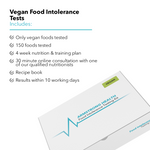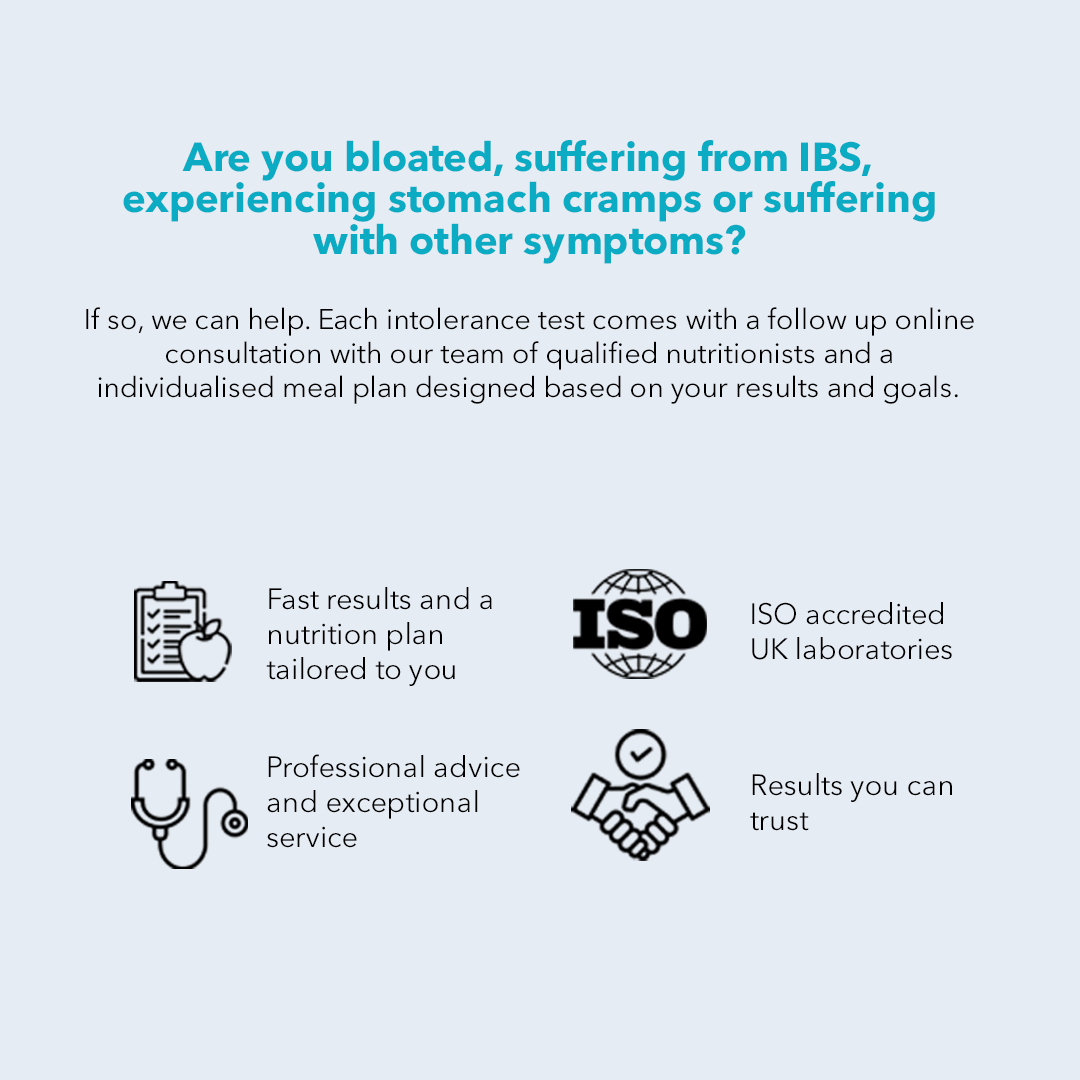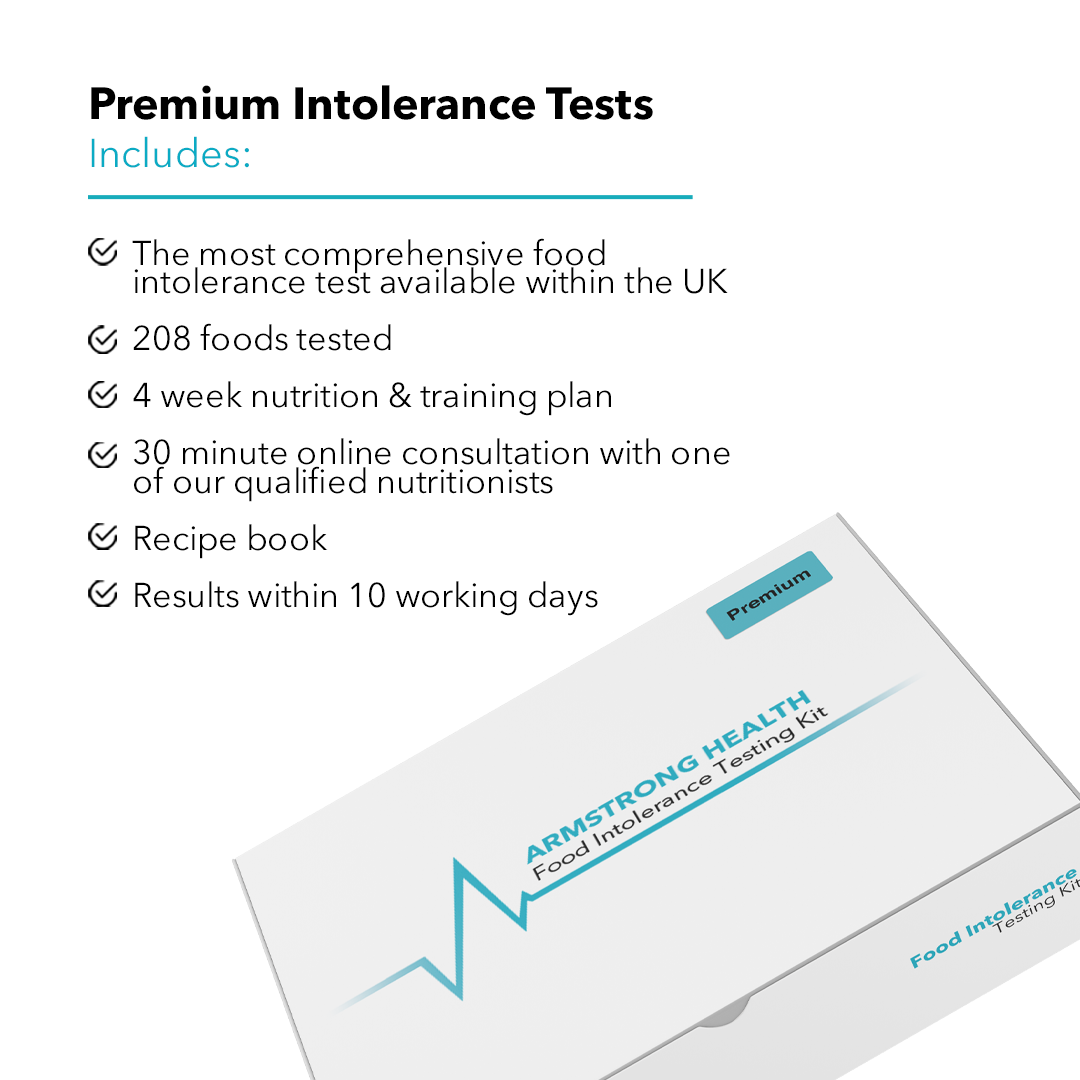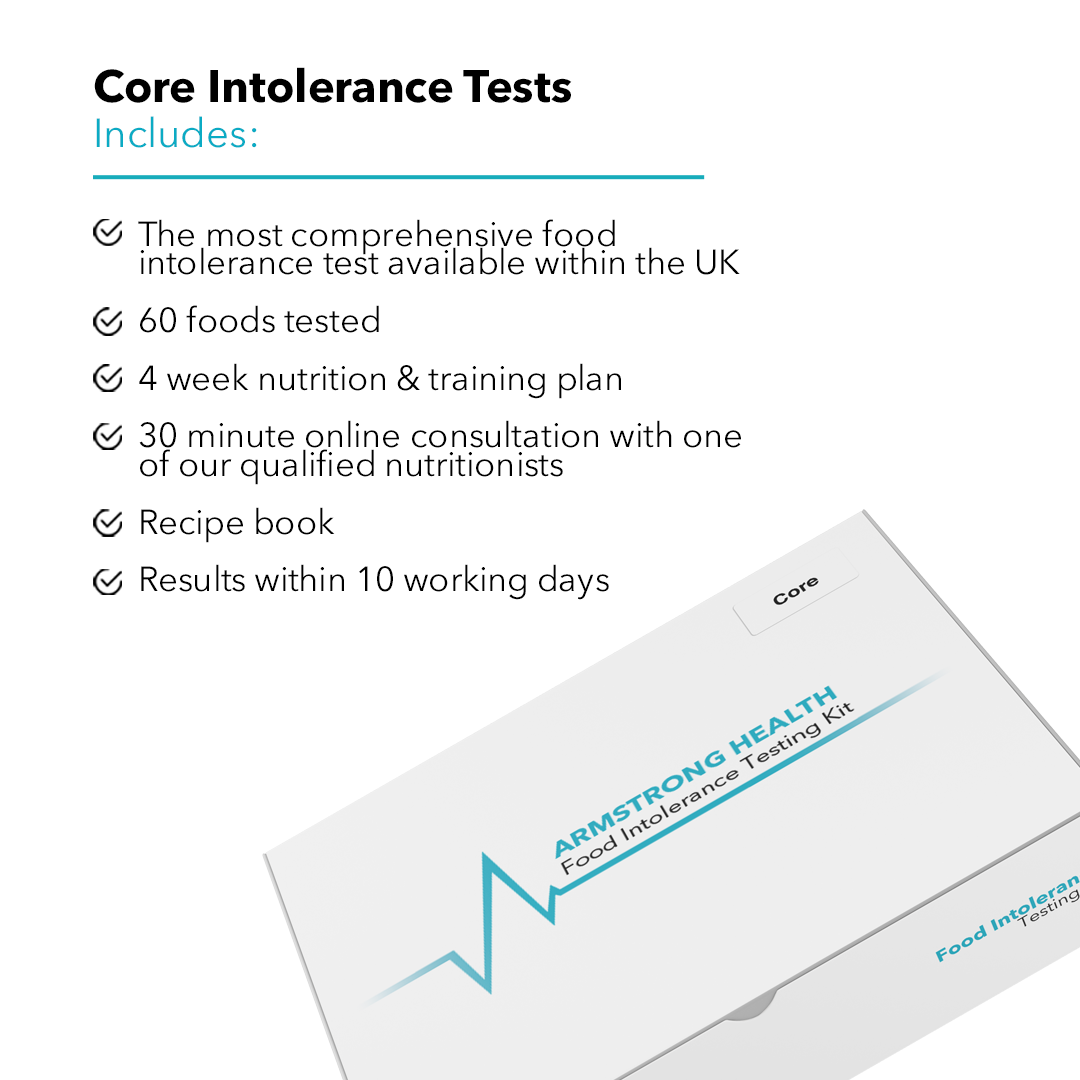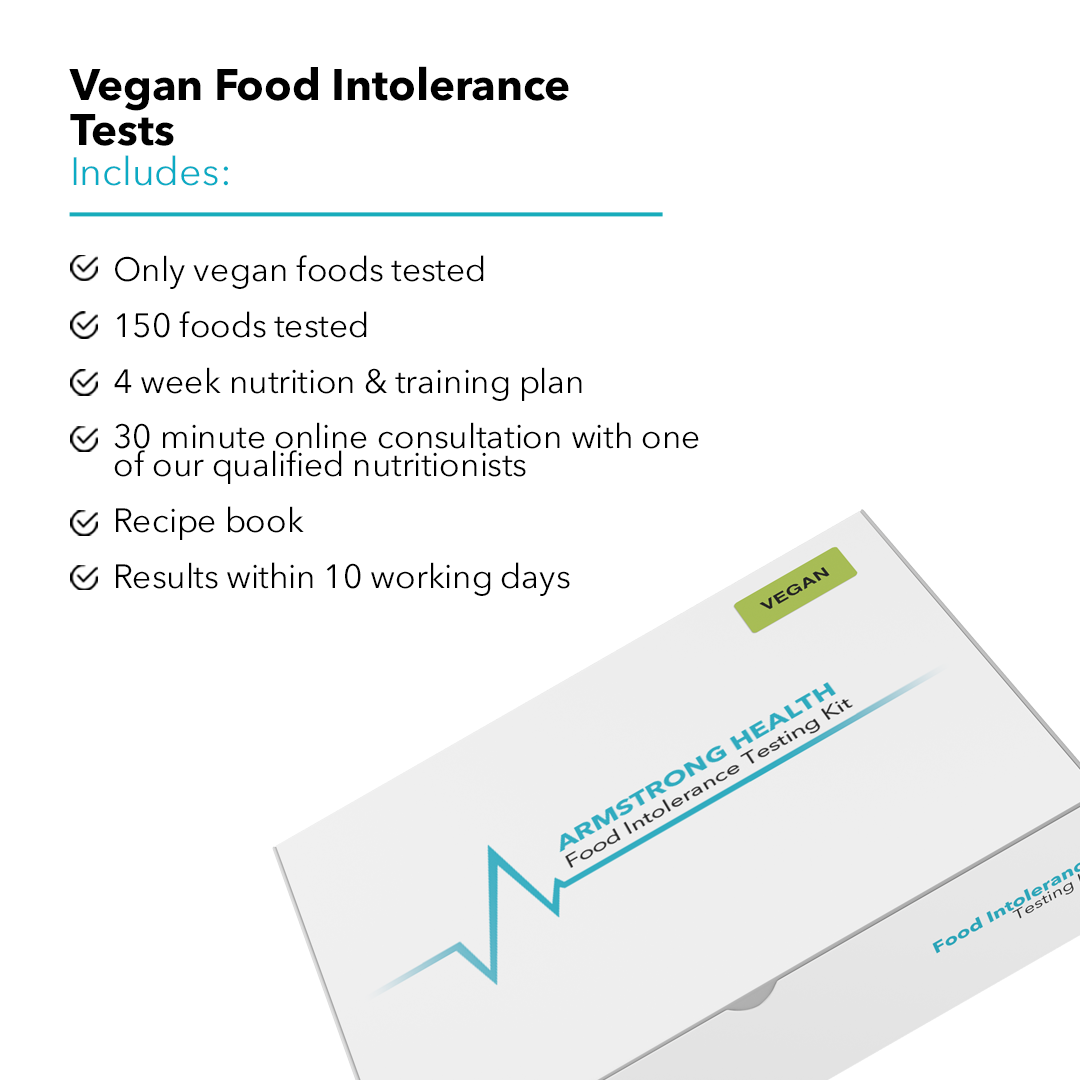Many people use the terms 'food allergy' and 'food intolerance' interchangeably. However, it's important to know that these two conditions are distinct and differ significantly in terms of symptoms, severity, and treatment. Understanding the difference between food allergies and food intolerances is crucial in developing a suitable plan of action for maintaining optimal health. Armstrong Health offer comprehensive food intolerance and sensitivity tests within the UK, using fully ISO certified UK based laboratories to provide accurate and reliable results for those experiencing discomfort or adverse reactions related to their diet.
A food allergy involves a reaction triggered by the immune system, which perceives a specific food protein as a threat. This response can cause a range of symptoms, and in some cases, the reaction can be life-threatening. On the other hand, food intolerance is a non-immune system reaction, usually related to the digestive system. People with food intolerances have difficulty digesting certain food components, leading to various discomforts such as bloating, indigestion, and abdominal pain.
Both food allergies and food intolerances can have a significant impact on an individual's quality of life. However, their effects and treatment vary. As such, it is important to accurately identify the cause of any adverse food reactions through testing. Comprehensive allergy and intolerance tests are invaluable in identifying the specific food items responsible for discomfort and adverse symptoms. Awareness of the differences between food allergy and food intolerance is the first step towards addressing the issue and developing a healthcare strategy tailored to your unique needs.
By understanding the distinctions between allergies and intolerances, individuals can take the necessary steps to manage their condition and ensure a balanced and inclusive diet. Armstrong Health' commitment to providing the most comprehensive food intolerance and sensitivity tests in the UK empowers those affected to take an informed and proactive approach in managing their health and well-being. Start your journey towards improved health today by learning about the benefits of food allergy and intolerance testing.
Food Intolerance vs Food Allergy: Understanding the Difference and the Benefits of Testing
Unravelling the Symptoms: Food Intolerance vs Food Allergy
A significant aspect of distinguishing between food intolerance and food allergy lies in observing the symptoms. Food allergy symptoms can manifest quickly, often within minutes of consuming the allergen. These symptoms can be severe and wide-ranging, including rash or hives, swelling, tightening of the throat, shortness of breath, and, in extreme cases, anaphylaxis. The severity of food allergy symptoms warrants immediate medical attention in some cases, as they can be life-threatening.
In contrast, food intolerance symptoms tend to be milder and may take hours or even days to surface. Most food intolerance symptoms are related to poor digestion and include bloating, abdominal pain, diarrhoea, and gas. In some cases, food intolerances can also cause symptoms like headaches, skin irritations and fatigue. Due to the delayed response and less severe nature of symptoms, food intolerances can often be difficult to identify without appropriate testing.
Diagnosis and Testing: Identifying the Culprit
As food allergies and food intolerances have distinct symptoms and underlying causes, the diagnostic tests employed to identify them also differ. For food allergies, a skin prick test or a blood test measuring allergen-specific antibodies can provide conclusive results. However, these tests are not suitable for detecting food intolerances.
To identify food intolerances, a blood test is conducted to assess the body's reaction to numerous food items. By measuring the levels of specific antibodies produced in response to these foods, it becomes possible to determine which items trigger an intolerance reaction. Comprehensive intolerance testing, like the services offered by Armstrong Health, provides accurate results, enabling individuals to make informed dietary adjustments to mitigate their symptoms.
Building a Tailored Diet: Responding to Intolerances and Allergies
Once food allergies and intolerances have been identified through testing, the next step is to develop a diet plan tailored to the individual's needs. In the case of food allergies, complete avoidance of the allergenic foods is critical to prevent potentially severe reactions. Moreover, individuals with food allergies need to be vigilant about reading food labels, communicating their allergies at restaurants, and carrying necessary medications such as antihistamines or epinephrine injectors.
For those with food intolerances, managing symptoms may involve a flexible approach. Some individuals may be able to tolerate small amounts of the problematic food without discomfort, while others may need to completely eliminate it from their diet. In some cases, addressing enzyme deficiencies or incorporating supplements can aid digestion and improve tolerance. In all instances, developing a personalised diet plan in consultation with a healthcare professional or nutritionist is the key to maintaining a balanced and inclusive diet that minimises adverse reactions.
Boosting Overall Health: The Benefits of Food Intolerance and Allergy Testing
The benefits of identifying and addressing food allergies and intolerances extend beyond merely managing the symptoms. Both conditions, if left undiagnosed and untreated, can negatively impact overall health and well-being. For individuals with food allergies, the risks are evident as they face potentially life-threatening reactions to trigger foods. However, in the case of food intolerances, the consequences can be subtle yet pervasive, leading to chronic discomfort, nutrient deficiencies, and diminished quality of life.
Comprehensive testing for food intolerances and allergies can empower individuals to take back control of their health and well-being. By tailoring dietary choices based on the results of these tests, individuals can experience improvements in digestion, energy levels, and overall quality of life. Furthermore, by eliminating or reducing the presence of adverse food items in their diet, individuals can often experience improvements in chronic symptoms such as migraines, skin irritations, and fatigue.
Conclusion
Understanding the differences between food intolerances and food allergies is crucial for effectively addressing and managing the conditions. Both can have a significant impact on an individual's quality of life, making accurate identification and diagnosis through testing essential. Comprehensive testing, like those offered by Armstrong Health, can provide valuable insights, enabling the development of personalised dietary plans that improve health and well-being.
Take the first step towards a healthier, happier life by investing in food intolerance and allergy testing. Know the difference, empower yourself with knowledge, and pave the way for a future with better health and well-being. Get a reliable food intolerance test now!














